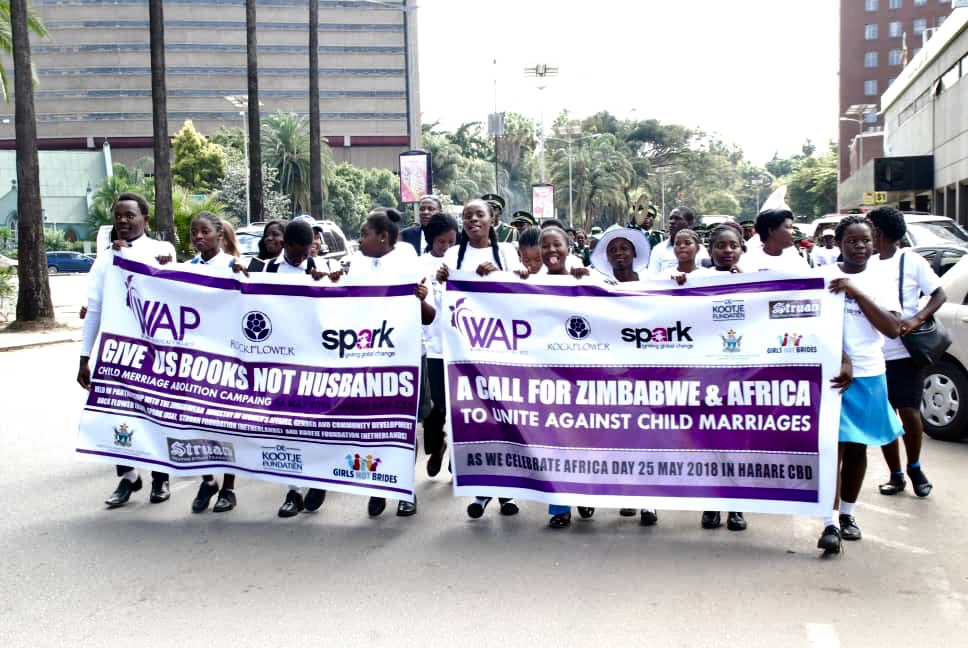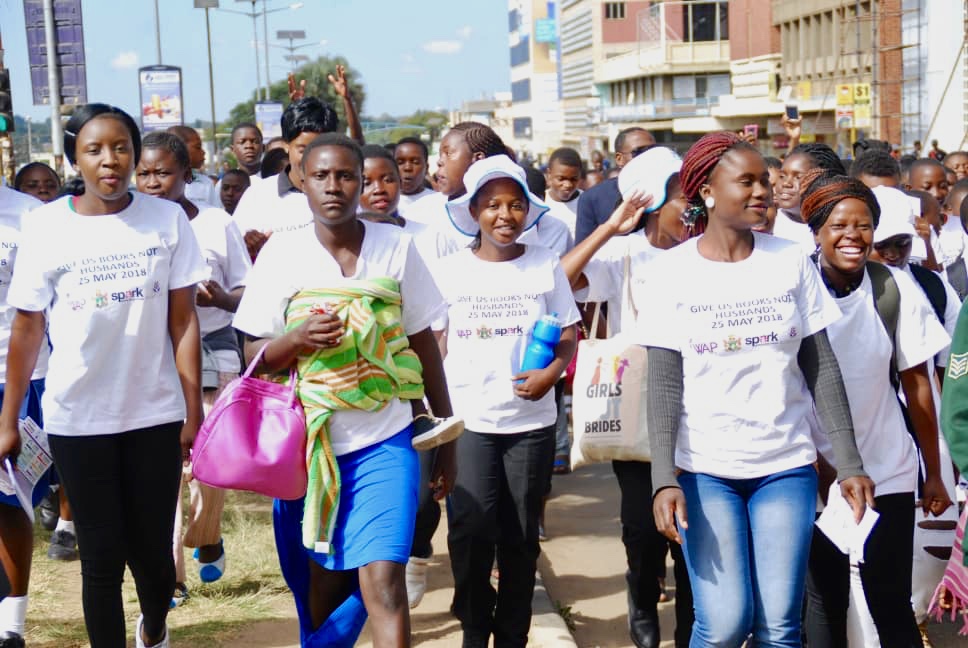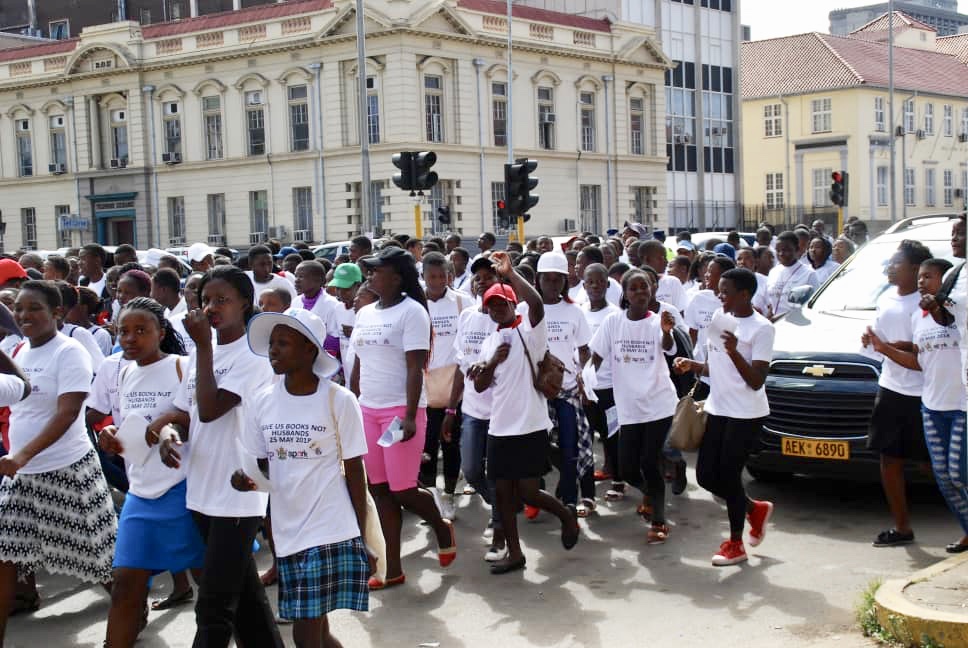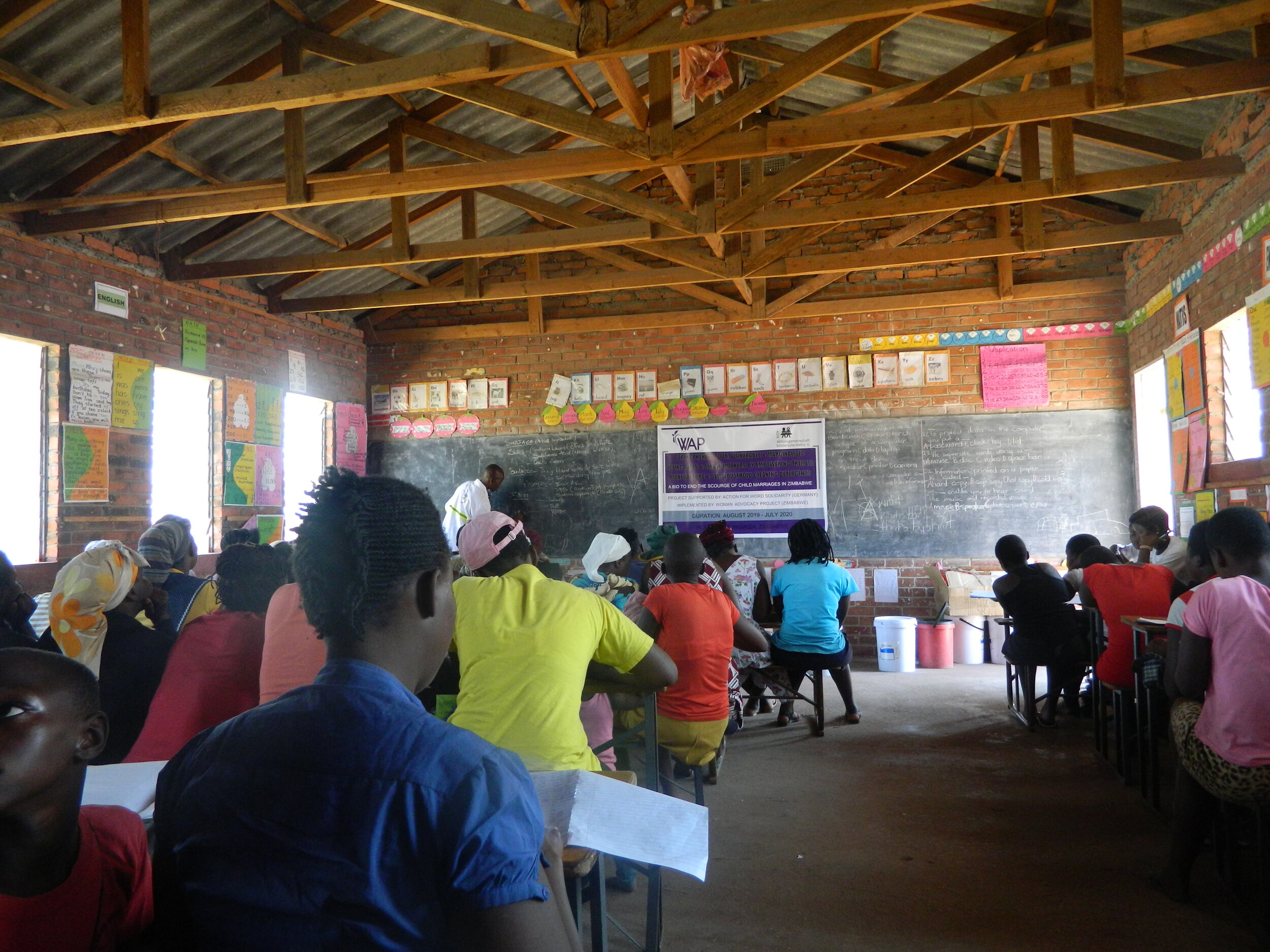Give Us Books Not Husbands
Location: Harare, Zimbabwe
Background
Since 1997, Zimbabwe has been experiencing a crisis which has negatively impacted the economic and social situation of its populace. Whilst the current political climate is relatively stable, the economic situation in the country continues to further deteriorate. Most affected by this dynamic are the women and girls, they constitute the majority (over 52%) of the population and are living in abject poverty, with high unemployment and extreme food insecurity. In addition, many children are dropping out of school because parents cannot afford to pay school fees. Basic education in Zimbabwe is no longer free. School fees are beyond the reach of most poor and low income families leaving more than 1 million children between 6 to 15 years without schooling.
This situation has pushed many parents and guardians especially those who are poor to force their young girls to be married before the age of 18. Child marriage has predominantly affected girls who live in poverty. Girls from the poorest households are more than 4 times likely to be married before age 18. The less educated a girl, the more she is likely to be married during her childhood, hence the correlation between education and prevention of child marriage.
The Zimbabwean government is a signatory to various international treaties such as the Convention on the Elimination of Discrimination against Women and the Convention on the Rights of the Child. These statutes seek to promote the welfare of children and to end child marriages. However this is not the reality on the ground.
Laws pertaining to marriage in Zimbabwe are discriminatory against girls; the Marriage Act allows girls age 16 to marry while the minimum age for a boy is 18. The Customary Marriages Act does not specify a minimum age of marriage. In 2013, Zimbabwe adopted a new Constitution which stipulates that “no person may be compelled to enter marriage against their will and calls on the state to ensure that “no children are pledged into marriage. In January 2016, the Constitutional Court ruled that the Marriage Act, which allowed girls as young as 16 to be married with their parents’ consent, was unconstitutional and recognized 18 years as the legal minimum age of marriage.
The impact of child marriages for girls goes beyond the obvious end to a career path. Child marriage brings an abrupt and unnatural end to a girl’s childhood and adolescence through imposing adult roles and responsibilities before she is physically, psychologically and emotionally prepared. Marriage imposes social isolation on girls, bringing unwanted separation from their friends and family. Once married, girls are most likely to feel powerless to refuse sex.
Child brides find it difficult to insist on condom use by husbands who are usually older and more sexually experienced making the girls vulnerable to HIV including other STDs. Child marriage can result in bonded labour or enslavement, a sentence to regular exposure to domestic or sexual violence and a pathway to commercial exploitation. Child brides are also under intense pressure to fall pregnant immediately after marriage presenting a major risk for both mother and the baby.
Project Specifics
Rockflower is partnering with Women Advocacy Project on a six month advocacy and awareness campaign for the prevention of child marriage and the spread of HIV/AIDS.
The initial project will reach the community members of Mabvunku - Tafara, Hopley and Mbare and engage in conversations with local community councils and the central government of Zimbabwe.









